06:27
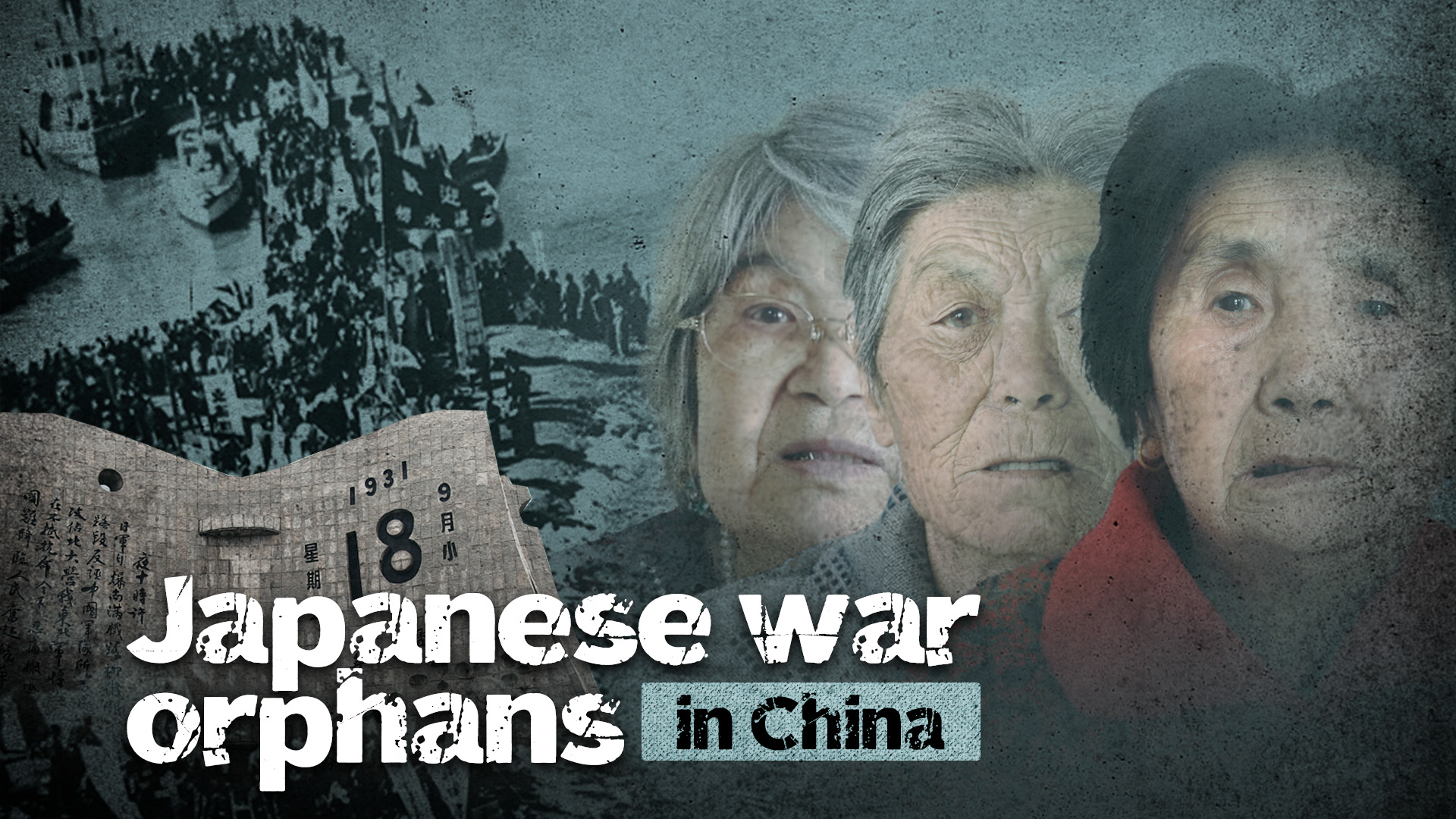
When Xu Shilan was little, she asked her father which date she was born on after seeing other kids celebrate their birthdays. Her father paused, then uttered, "July 20 is your lunar birthday."
Years later she learned that July 20 on the lunar calendar is in fact August 15 in the year of 1945, the day Japan surrendered to the Allies, bringing an end to WWII. She recounted this childhood memory, sitting on her bed in a cozy bungalow opening to a backyard studded with mottled pots of flowers.
We made the visit to her home in the northeastern Chinese town of Fangzheng, 120 miles away from the capital city of Harbin in Heilongjiang Province. Upon arriving, she was already waiting for us, dressed in a claret-red coat and her neatly combed jet black hair, which her daughter said she had helped dye. It's hard to tell her exact age from her wrinkled face and diminishing hearing, yet she was able to articulate her thoughts clearly. She believes she's 80 years old, but there's no way to be sure, since her father had her age set at 19 in the year she got married.
She'd lived a peaceful life with her family – a loving husband and three children – until one day in the year 2000 when she came across a man who was surprised to see her and asked, "Why are you still in town? They've already gone back to Japan." That statement made her realize why she had been called "little Jap" by neighboring kids when she was little.
The man turned out to have handed her over to her foster parents in the final days of WWII. At the time, he encountered a feeble Japanese woman in the street who had begged him to take care of her baby girl. A poor 19-year-old himself, he couldn't afford to raise a child and hence went searching for a kindhearted family to take her in. Finally the toddler, groaning with fever and pain, was rescued by a young couple. "Your foster father repeatedly warned me against telling that you are a Japanese orphan," the man told Xu, a promise that he kept for over half a century.
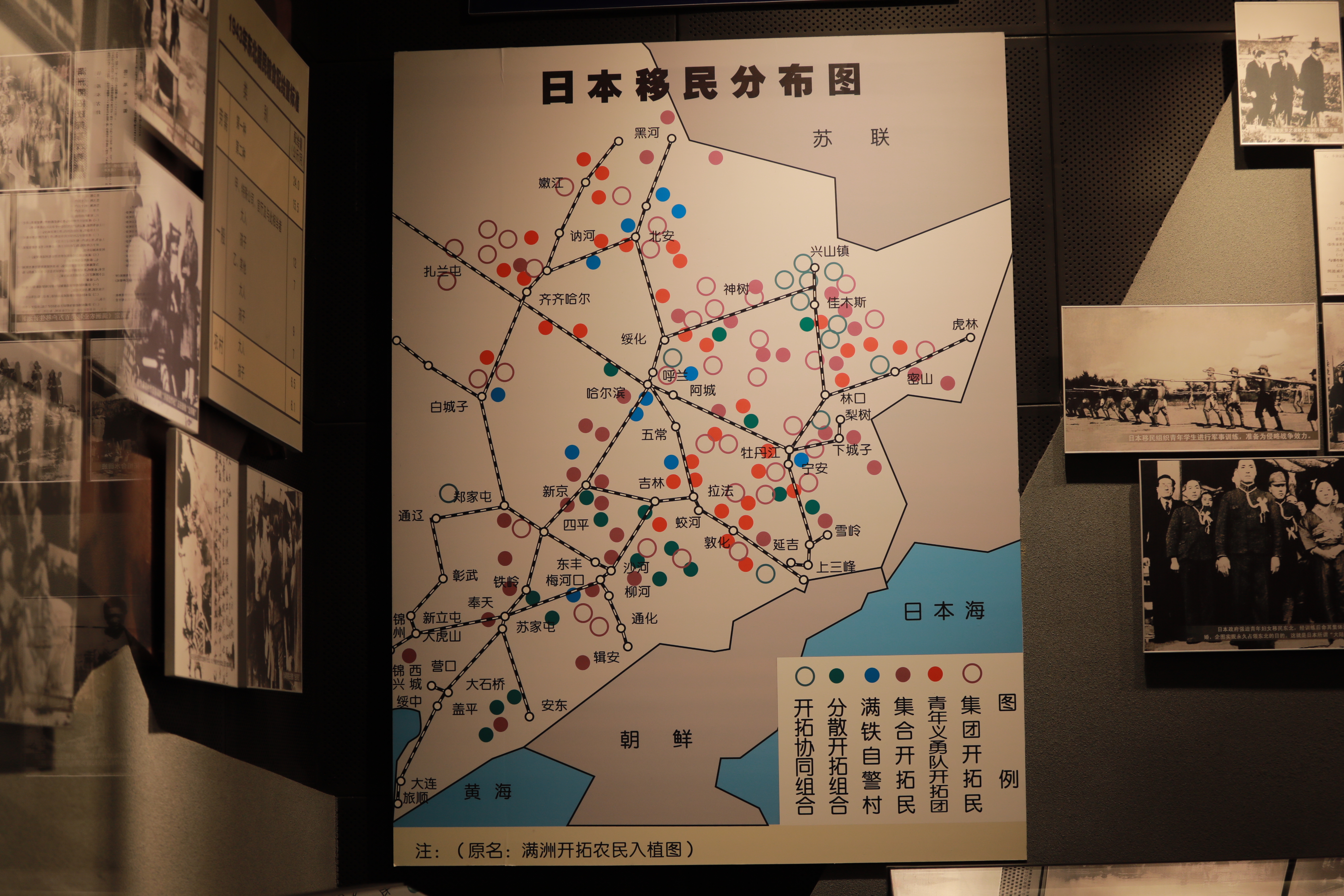
A map shows the Japanese settlements after the Japanese invasion in northeast China started on September 18, 1931. Photo taken at the September 18th History Museum in Shenyang, Liaoning Province, April 26, 2021. Qi Jianqiang/CGTN
A map shows the Japanese settlements after the Japanese invasion in northeast China started on September 18, 1931. Photo taken at the September 18th History Museum in Shenyang, Liaoning Province, April 26, 2021. Qi Jianqiang/CGTN
In those days of turmoil following the war that had begun with the Japanese invasion on September 18, 1931, Chinese foster families chose to keep secret their adoption of Japanese children, afraid that a target would be painted on the backs of these young lives. After all, they were the children of the enemy.
Sun Yuqin, who lives a 30-minute drive away from Xu, only came to know that she's Japanese when her foster mother was dying in 1968.
"When I was seven, a neighbor – a Japanese woman known as a 'stranded war wife' – told me I'm Japanese. I ran home seeking confirmation from my mother. My mother said, 'No, you are definitely Chinese'," Sun, now 76, told us. Unlike Xu, she knew how old she was because she was born in her foster parents' home.
In the days shortly before Japan's defeat, Sun's biological mother was about to give birth and hid along with her father in a cornfield behind what was back then her Chinese parents' house. "My foster family found them and let them in the house since my birth mother's amniotic fluid broke in a gush. Days later, my foster mother delivered me. By then news came that Japan had surrendered and my biological parents left in spite of persuasion," Sun said. "After finding my biological parents dead in a battle, my foster family realized they must protect and bring me up."
Sun showed us the mark on her right leg – the scar of a scratch left by her birth mother, along with a brown tweed coat and a letter with their family information in it. Sun wore that coat for decades before turning it into a smaller jacket for her grandson. As for the letter, she found it in an embroidered shoe according to the clue her foster mother offered. It's now become a mess of erasures and stains after all these years.
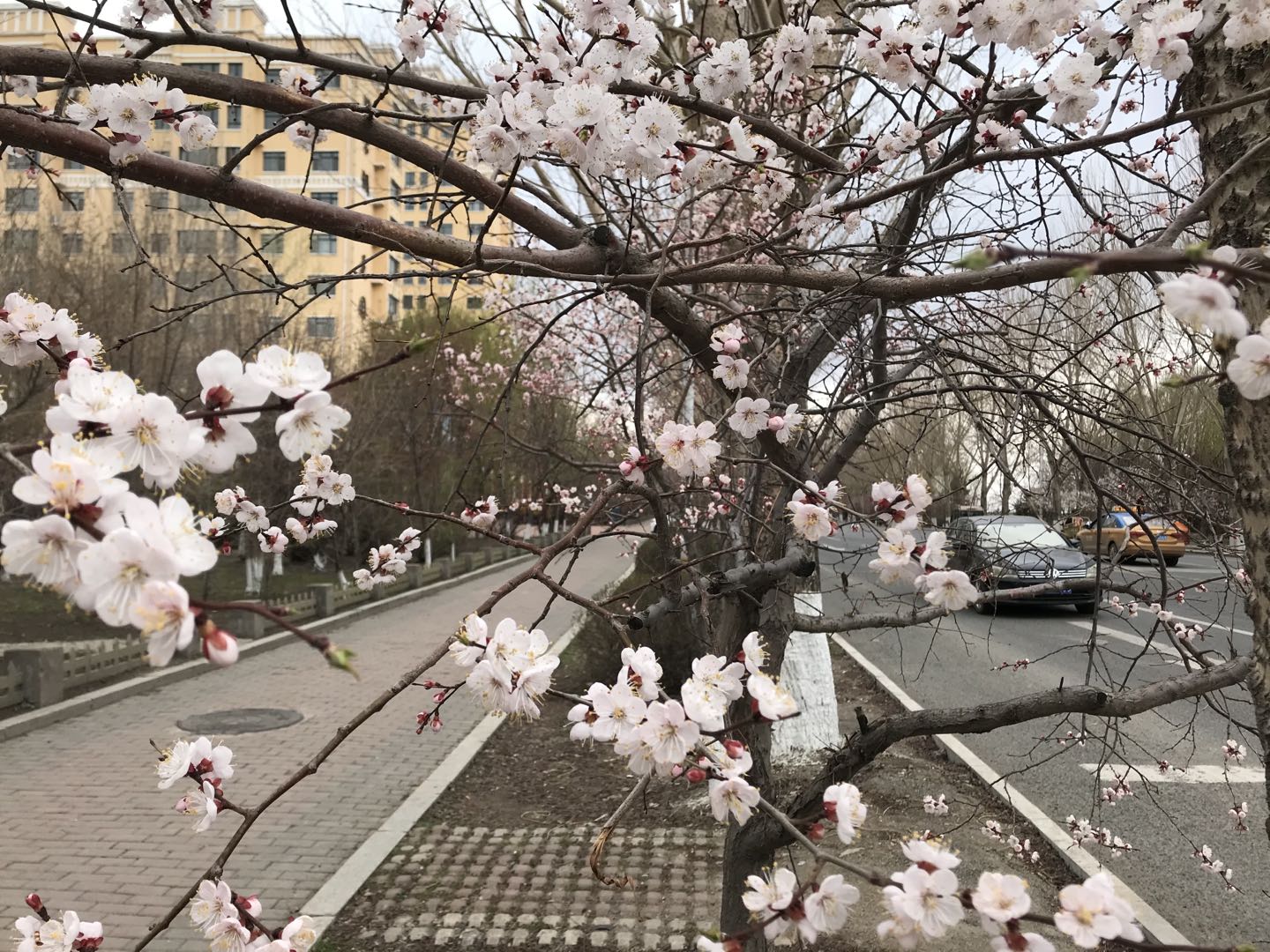
A street scene in Fangzheng County, Heilongjiang Province, northeast China, April 29, 2021. Wang Xiaonan/CGTN
A street scene in Fangzheng County, Heilongjiang Province, northeast China, April 29, 2021. Wang Xiaonan/CGTN
Adopting the enemy's children
Xu and Sun are the only Japanese war orphans who are still alive in Fangzheng, the quiet, scarcely populated county in China peppered with billboards in both the Chinese and Japanese languages. The small town's complicated ties with Japan date back to September 18, 1931.
With the Japanese invasion of northeast China came an emigration program to settle 1 million Japanese households, roughly 5 million people, in northeast China over the following 20 years, as part of Japan's effort to colonize the fertile, resource-rich region. "Officials, factory managers, railway workers, and mostly, farmers, came in throngs with the creation of the puppet state known as Manchuria. First the men arrived, then the women followed, with families right behind, turning Chinese villages into Japanese communities," Meng Yueming, deputy director of the Institute of Northeast Asian Studies at the Shenyang Academy of Social Sciences, explained. "Many rural Japanese were deceived by the Japanese government at the time who had promised them a better life and land possession."
Japan sent over 380,000 agrarian emigrants, most of them living a destitute and depressed life in rural Japan. In northeastern China, they tilled the land the Japanese army confiscated from Chinese peasants and also hired Chinese as laborers. In a way, they developed sophisticated relationships with the locals, filled with a mixture of agony, hatred and sympathy. Fangzheng was home to a large number of such Japanese settlements. Xu said her foster father utterly detested them as he was badly beaten by some Japanese while working for them.
In the final years of WWII, male Japanese farmers were conscripted and became part of the Japanese army reserve to help fight its war, leaving behind women, children and the elderly.
In August 1945, Japan surrendered as the Soviet army advanced. An exodus began.
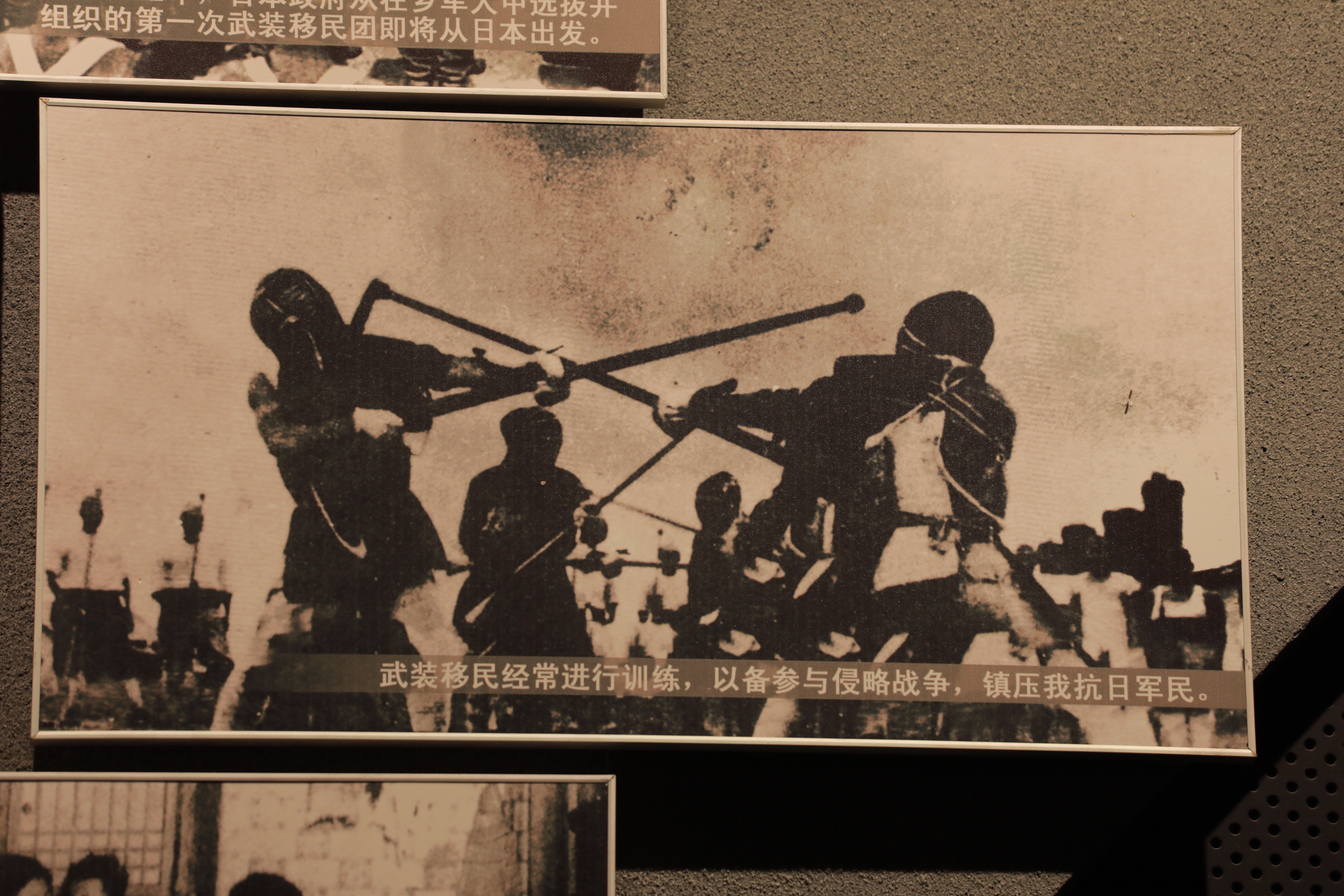
A photo shows Japanese settlers in northeast China practice fighting in preparation for battles. Photo taken at the September 18th History Museum in Shenyang, Liaoning Province, April 26, 2021. Qi Jianqiang/CGTN
A photo shows Japanese settlers in northeast China practice fighting in preparation for battles. Photo taken at the September 18th History Museum in Shenyang, Liaoning Province, April 26, 2021. Qi Jianqiang/CGTN
However, the Japanese government did not immediately notify the farmers. "They were afraid they would be a burden to post-war Japan, so they adopted a policy of 'abandoning emigrants'," explained Meng, who's studied the population of Japanese war orphans for years. "The low-level Japanese settlers were left to sink or swim."
After a few days of walking to rail stations or ports in the hope of returning to Japan, they were either exhausted or fell ill. Some mothers, hounded by hunger and disease, started to give up their children, starting with the youngest who couldn't walk. They either abandoned them in the hope that kindred locals would give them a chance to live or entrusted them to Chinese families. In the latter case, most mothers left a keepsake noting their name, birth, and home address in Japan, according to Meng.
There were also cases of military leaders ordering mothers to strangle their children for fear that their crying would reveal their whereabouts during the retreat. Tragedies abounded, in addition to hundreds of group suicides in the spirit of "Japanese militarism."
Incomplete statistics show more than 4,000 Japanese orphans under the age of 13 were left behind, 90 percent of them the offspring of emigrants.
In the overcast days after August 15, some 10,000 Japanese emigrants in Fangzheng tried to make their way to Harbin to catch a train back. "Cold, hungry, and trapped by Soviet soldiers, some 5,000 people died," Cao Songxian, director of Fangzheng's overseas Chinese federation, told us on the way to Xu's home. He pointed to the gun turrets and airports the Japanese built in the small county. "Babies were just crying along the dirt street, and local Chinese took them home."
Impoverished themselves, they managed to raise the children with all they could. "Everyone was living on very short commons in those tumultuous years but they'd starve themselves to feed the children," Meng said.
"My foster parents have five kids but I'm their favorite," said Sun, who has an elder sister and three younger cousins. "Every Spring Festival, I'm the only one in the family to wear new clothes while my sisters had to wear old coats and pants of mine." Moreover, she's also the only one among all the girls to have graduated from junior high, while all her sisters dropped out from elementary school. "Upon graduation, I became the first female tractor driver in Fangzheng," she exclaimed, wearing a proud look.
These Chinese parents also shielded the kids from any psychological trauma. Despite the myriad atrocities the Japanese imposed on him, Xu's foster father would take the issue up with the parents of the children who called her "little Jap." Once she got angry with her father for not allowing her to play with a kid in the neighborhood, only to learn later that he was protecting her. That was also something Liu Guizhi's foster parents would do every time she was bullied. Liu's story is more painful. She's orphaned twice – her stepfather gave her up and 13 years later her foster parents died of illness.
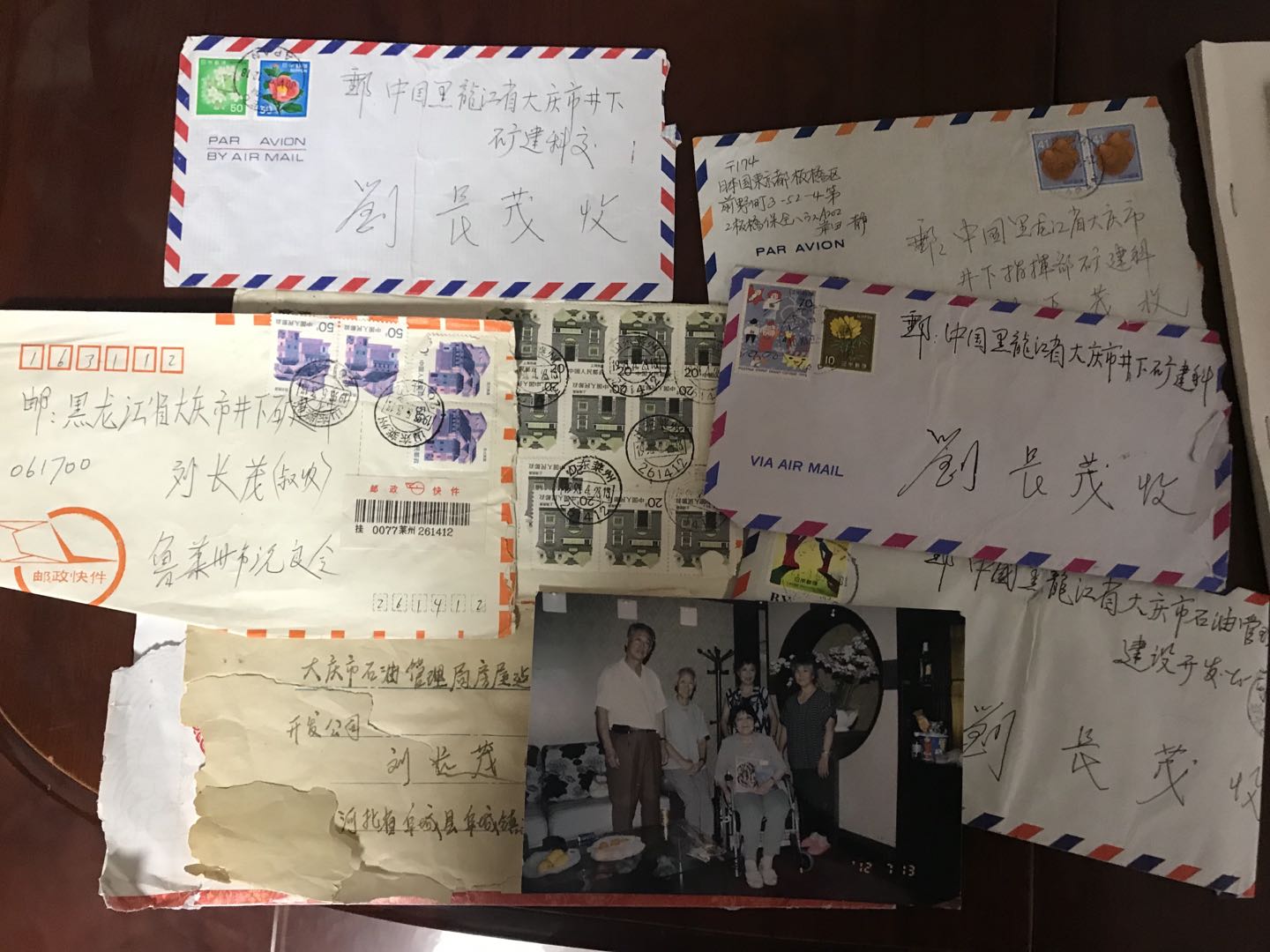
Letters between Liu Changmao and his Japanese sister Liu Guizhi, whose Japanese name is Keiko Matsuda. Photo taken in Liu Changmao's home in Daqing, Heilongjiang Province, April 27, 2021. Wang Xiaonan/CGTN
Letters between Liu Changmao and his Japanese sister Liu Guizhi, whose Japanese name is Keiko Matsuda. Photo taken in Liu Changmao's home in Daqing, Heilongjiang Province, April 27, 2021. Wang Xiaonan/CGTN
The three war orphans we reached out to have varied life trajectories, yet what ties them together is that they were all adopted and raised by Chinese families, married into Chinese families and don't speak good Japanese.
'China is my home, forever'
Not long after Liu was born in 1940, her father joined the Japanese emigrants to Harbin. Two years later, her biological mother eventually carried her on her back to look for her father. After a difficult journey, they were finally able to reach the settlement where her father was stationed, only to discover that he left to fight in the military. Penniless, they had to beg on the streets while they continued to look for him. One day news came that her father had died.
Her mother tied the knot again with a Japanese man who took Liu as a burden and gave her to a childless Chinese couple. "I was treated like a princess, even after my brother was born in 1947," she told us through the phone. She went back to Japan's Saitama Prefecture, her hometown, in 1990, under a repatriation program launched by both the Chinese and Japanese governments. The programs started in 1981, three years after the two countries established diplomatic ties. Liu was part of the second batch to return to Japan and took the name of Keiko Matsuda.
Japan has so far recognized 2,818 war orphans, among them 2,557 have gone back to Japan and 260 chose to stay. "Many chose to stay in China and there are also those who made it back to China after spending some time in Japan because of bias and discrimination, both conscious and unconscious," said Du Ying, director of the Institute of Japanese Studies at the Heilongjiang Academy of Social Sciences. "That part of history was basically in oblivion in the memories of many Japanese before the 1980s. So it's very difficult for the war orphans to live a decent life back in Japan."
Liu experienced a down period, taking as many part-time jobs as she could. But a tough woman, she managed to lead a happy life with her big family.
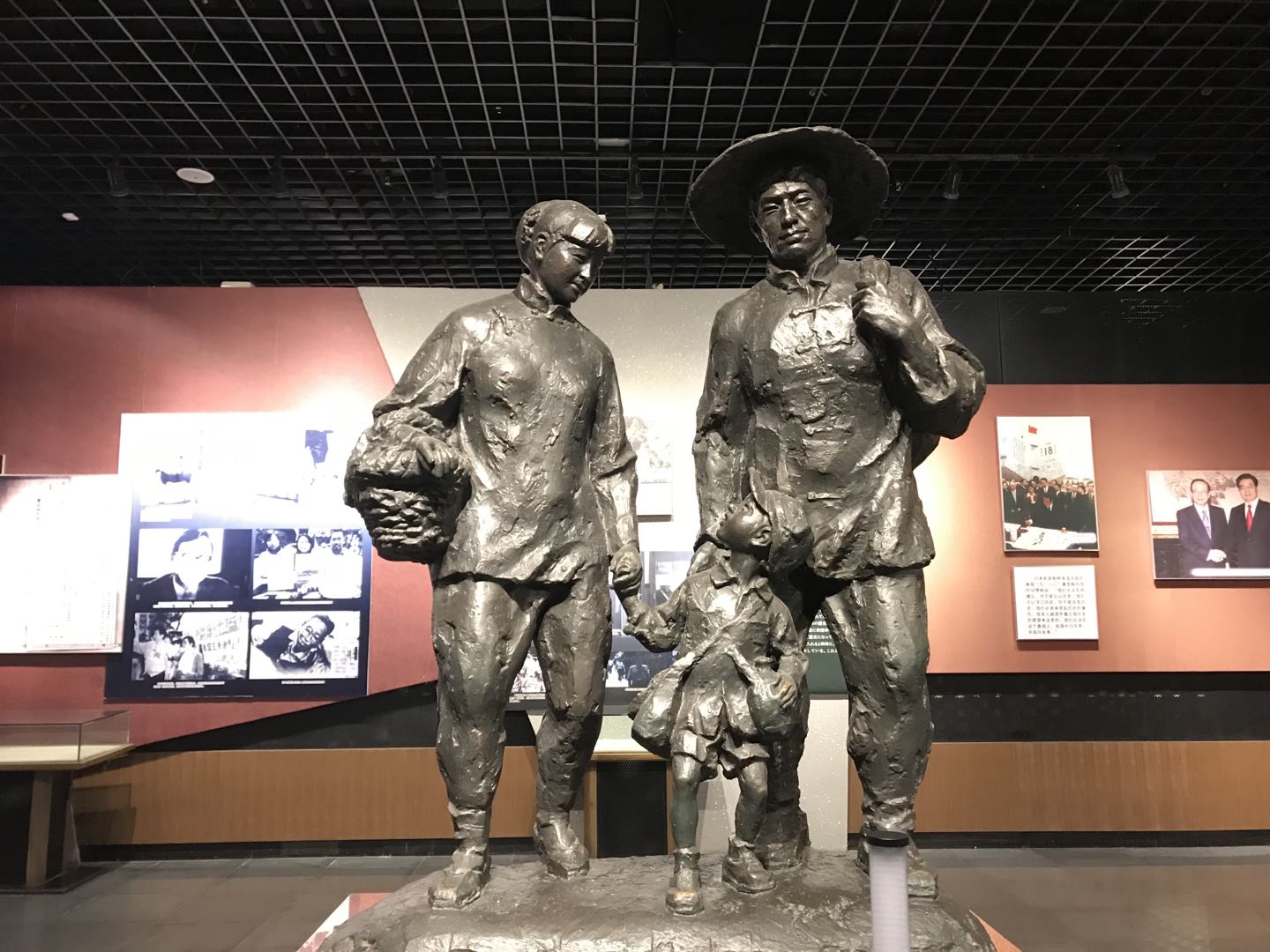
A monument dedicated to Chinese foster parents at the September 18th History Museum in Shenyang, Liaoning Province. Over 1,000 Japanese war orphans donated money to build the monument in 1999. Wang Xiaonan/CGTN
A monument dedicated to Chinese foster parents at the September 18th History Museum in Shenyang, Liaoning Province. Over 1,000 Japanese war orphans donated money to build the monument in 1999. Wang Xiaonan/CGTN
Before our trip to Fangzheng, we arrived at Daqing, known as the oil city, to visit her Chinese brother Liu Changmao who's in his 70s now. They'd written to each other a few times every month before smartphones facilitated video communication.
"We are very close. My parents died when I was only six, my Japanese sister helped bring me up when we lived at our relatives' home in Shandong," Liu Changmao said. "Stay home. COVID-19 is rampant in Japan," he told his Japanese sister before hanging up.
In Japan, Liu Guizhi and other Japanese war orphans, have been helping to improve China-Japan ties – a relationship of entanglement imbued with love and hatred. In 2009, the elderly woman went to Beijing with a delegation of Japanese orphans and sang a song written by her Chinese husband to then Premier Wen Jiabao "China is my home forever."
In times of bilateral uncertainties, the orphans served as a bridge. In 1995, an orphan built a monument to Chinese foster parents in the China-Japan Friendship Garden – a cemetery then Premier Zhou Enlai ordered to construct in the 1960s in the memory of the over 5,000 Japanese who died in Fangzheng during their retreat. In 1999, over 1,000 orphans donated money to build another monument to Chinese foster parents inside the September 18th History Museum in Shenyang. There's also a China-Japan Amity House in Changchun, built exclusively to house elderly foster parents, which has remained empty since the last foster parent there died in late 2020.
"When the war orphans decided to go back to Japan, which recorded spectacular economic growth in the '80s and '90s, all their Chinese parents showed was encouragement no matter how reluctant they were," Meng said.
Du has been studying the population of Chinese parents who adopted Japanese orphans. According to her observation, these parents would always let the children choose their own path, even though some of them did not choose to have their own kids in order to create a better environment for the children of the enemy. "Children are innocent. They are also victims to the war."
For Liu Guizhi, Xu Shilan, Sun Yuqin, and others like them, the war is still very much part of their lives. Sometimes, Xu would stare at the smallpox vaccination scar on her left arm, which is different from the one for the Chinese, and the only mark her native country has left on her.
(Special thanks to the following people, in addition to the interviewees mentioned in the article, who helped tremendously with our reporting, offering their expertise and resources: Da Zhigang director and research fellow of the Institute of Northeast Asian Studies at the Heilongjiang Academy of Social Sciences, Lv Xiang, a retired professor of studies of Japan and Korea at the Liaoning Academy of Social Sciences, and Guo Xiangsheng, a folklore researcher in Fangzheng.)
Reporters: Wang Xiaonan, Bi Junxin
Writer: Wang Xiaonan
Video editor: Zhao Yue
Videographer: Qi Jianqiang
Yu Jing helped with video editing.
Cover image designer: Li Jingjie

